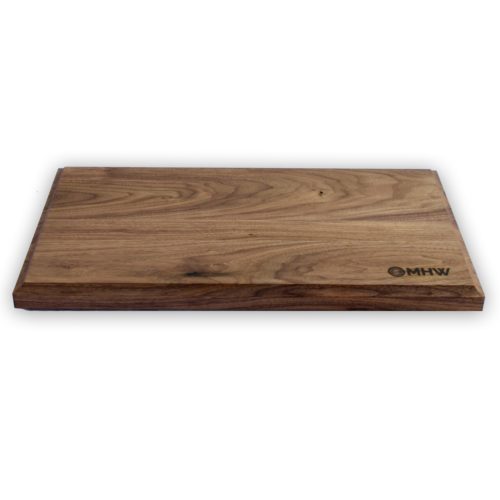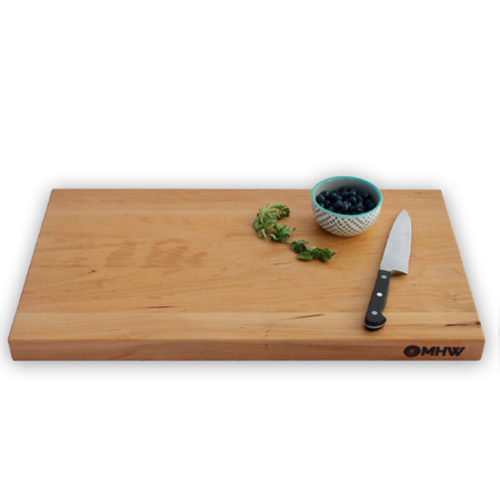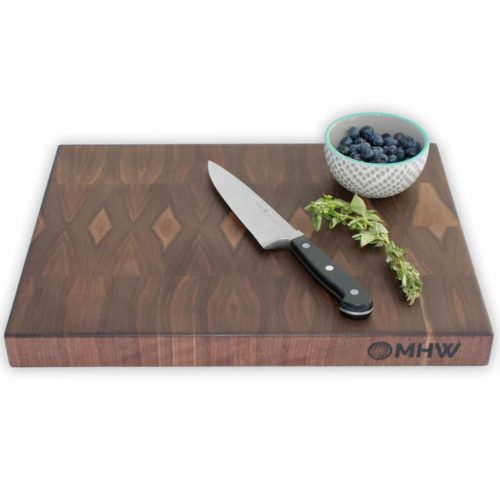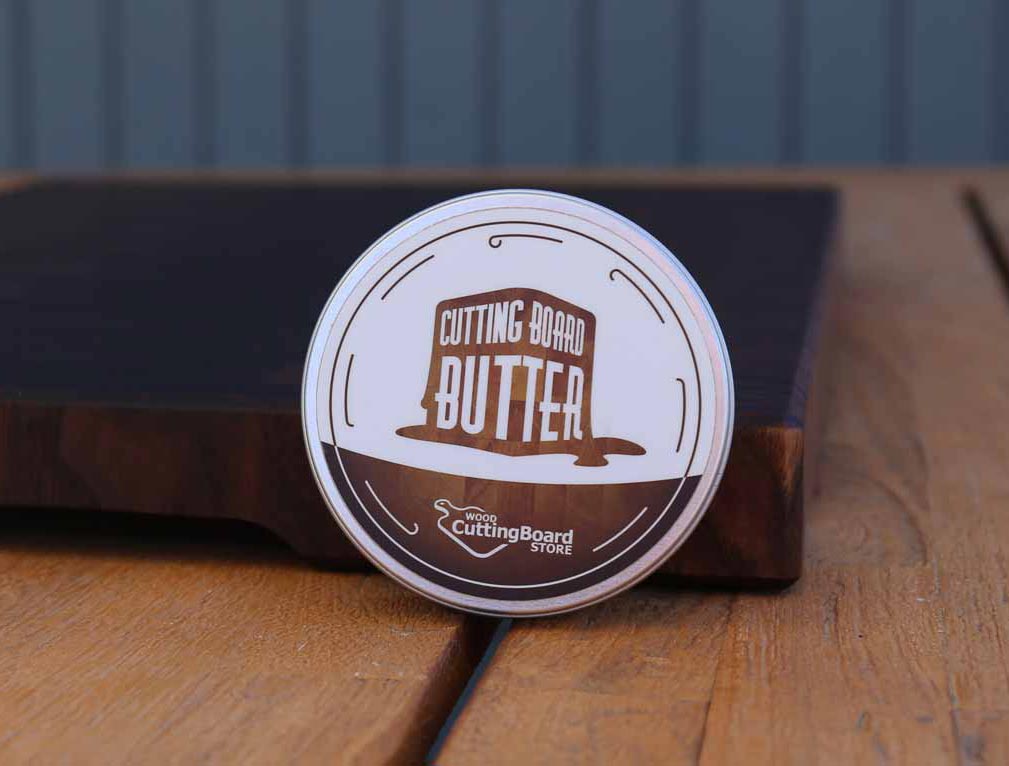There is ample work space on this 10×12 work surface. Perform tasks and cut with a breeze on this walnut board. The 2” thickness that comes with all of our cutting boards and high-quality butcher blocks ensures that the board lasts for years to come and can be used daily without deteriorating or falling apart.
We use the best selection of walnut to showcase the true nature of the beauty of this particular wood. Walnut wood is naturally lustrous and visually appealing but its color will actually lighten over time and the wood will strengthen further as well. This is beneficial for cutting boards specifically as it means that even with daily use and potential fall or water damage, the board will still remain in good condition and won’t warp, crack, chip, or dry out.
On the Janka hardness scale, Walnut ranks 1,010 lbf or 1,010 Janka. With this said, it is harder than cherry wood but not quite as hard as maple wood. It’s strength is what makes it the only dark-brown domestic wood on the market to date. On top of its impeccable strength, walnut wood also self heals which is particularly valuable in kitchen settings.
With cheaper wood and plastic cutting boards, deep grooves made in these boards with chef’s knives can trap food particles with ease and contaminate any food cut on the material moving forward. This can lead to foodborne illnesses and food poisoning that doesn’t just affect restaurants but home cooks as well.
According to Eat Right, “When juices from raw meats or germs from unclean objects accidentally touch cooked or ready-to-eat foods (such as fruits or salads), cross-contamination occurs. If not cleaned correctly, the board harbors harmful bacteria.” However, with self healing walnut boards, this no longer is an issue as these deep grooves repair themselves the longer the board is used.
Walnut wood is most commonly used for hardwood flooring, construction, instruments, veneers, cabinetry, furniture, and various woodworking items. This is mainly due to its lifespan and cost-effectiveness. This face grain will last for years to come but not break the bank.
If walnut wood is purchased from a reliable resource, it can be incredibly eco-friendly in nature. Because it requires very little water and shade, it does not need a full team or process to grow and, although the growing process is upwards of 50 years, the fact that every tree is immediately replaced when one is cut down means the process is continual and always adding oxygen to our atmosphere.
Having said all of this, walnut wood’s versatility and strength make it a great material for cutting boards and butcher blocks both in professional restaurant and home kitchen settings alike.
All dimensions are approximate sizes. It is best to work with the natural characteristics of the wood first and the dimensions second.



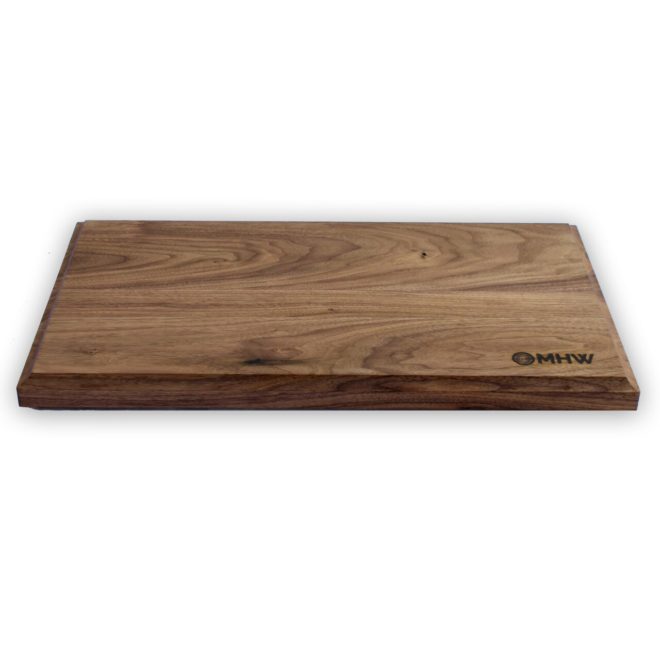
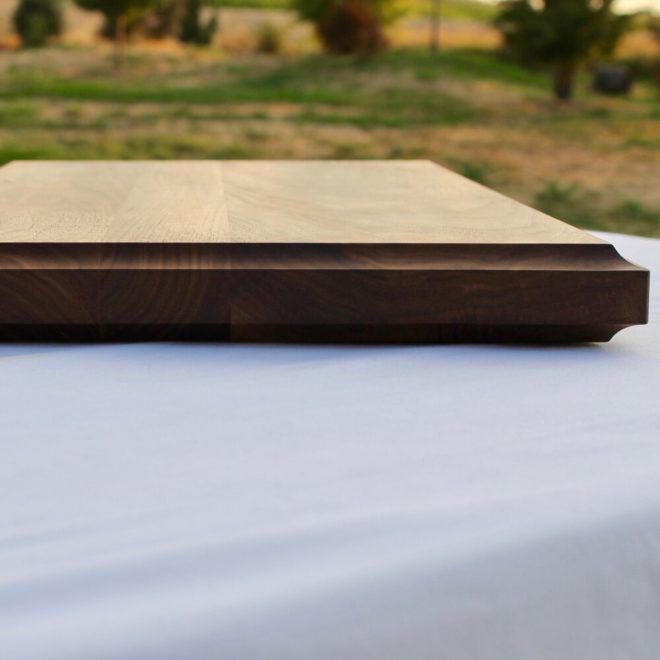
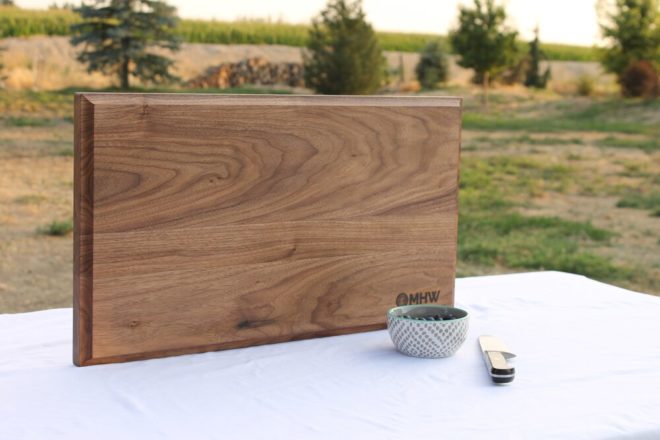
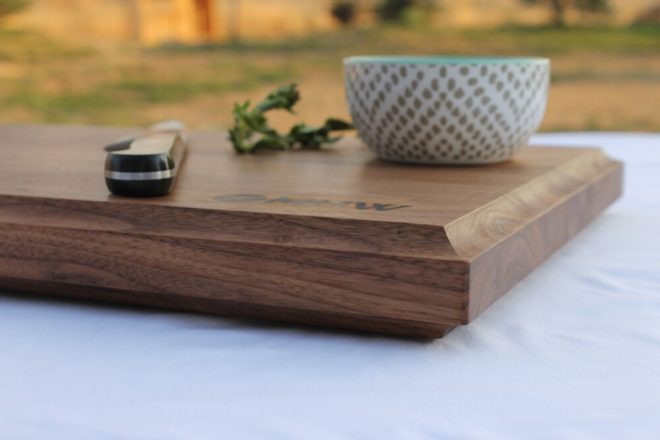
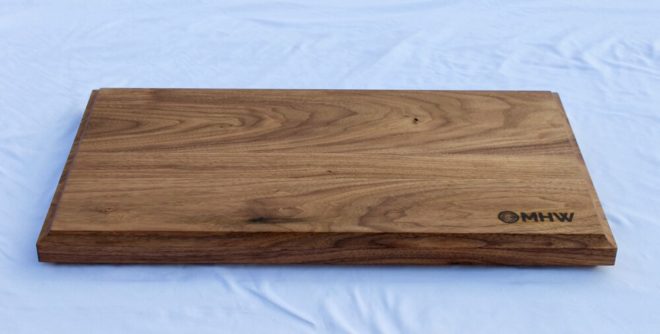
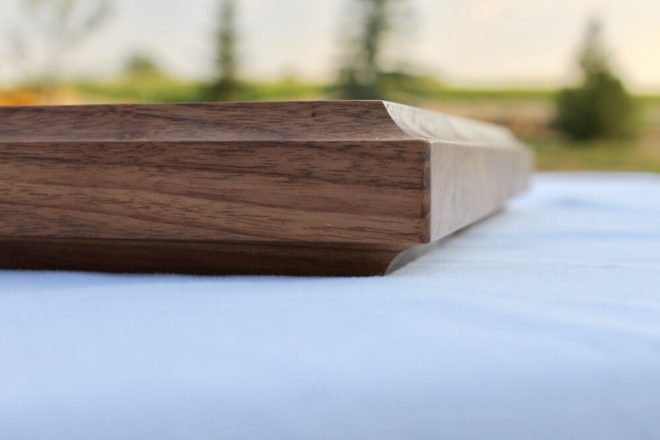
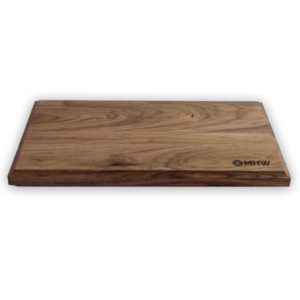
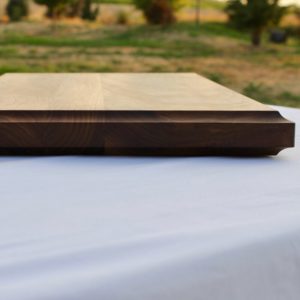
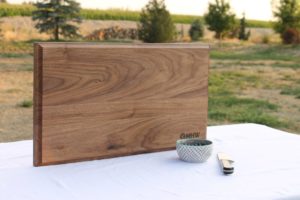
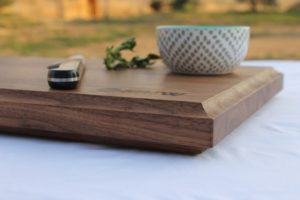
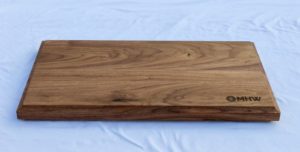
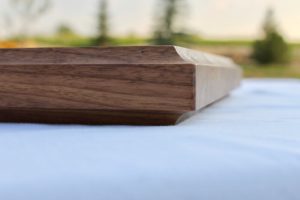

 When purchasing a custom cutting board or butcher block from our website, you can feel confident knowing that all of our products are hand-made in the USA. Our company,
When purchasing a custom cutting board or butcher block from our website, you can feel confident knowing that all of our products are hand-made in the USA. Our company,  We’re so convinced that you’ll be satisfied with your new cutting board or butcher block, that we proudly offer a 30-day money-back guarantee on all products. Our boards are all hand-built in the USA to ensure the highest level of detail, strength and durability needed to last. Whether you order a maple, walnut, cherry board, or have us build you something entirely unique and custom, your investment is backed by our guarantee to ensure your satisfaction.
We’re so convinced that you’ll be satisfied with your new cutting board or butcher block, that we proudly offer a 30-day money-back guarantee on all products. Our boards are all hand-built in the USA to ensure the highest level of detail, strength and durability needed to last. Whether you order a maple, walnut, cherry board, or have us build you something entirely unique and custom, your investment is backed by our guarantee to ensure your satisfaction.